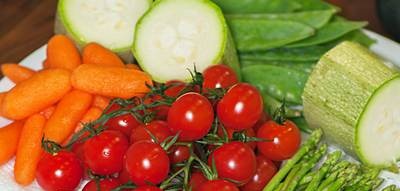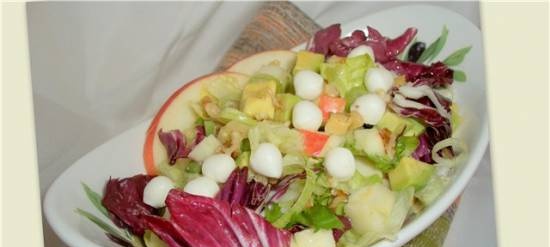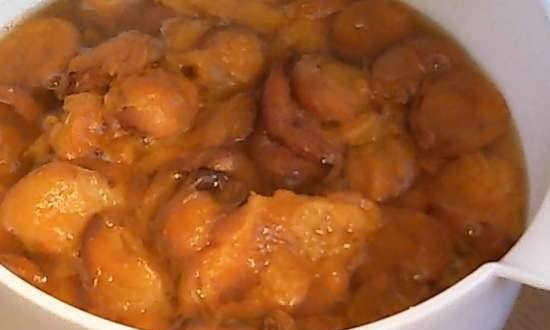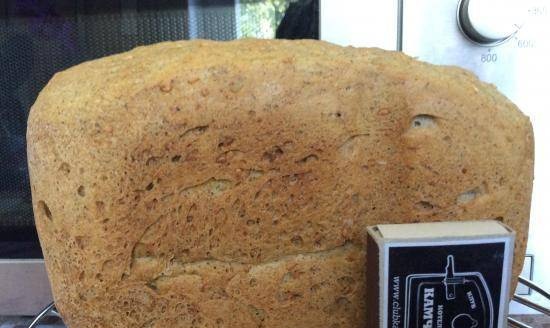|
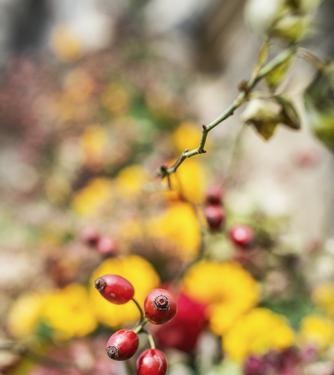 Quite satisfying and tasty food sometimes turns out to be inadequate if it contains little or no substances called vitamins. Quite satisfying and tasty food sometimes turns out to be inadequate if it contains little or no substances called vitamins.
Irrational cooking, depriving food of vitamins, does not give a picture of a real illness, but a person begins, for example, to notice that he gets tired faster than usual, he is overcome by apathy, a strange unwillingness to move. With vitamin malnutrition, there is also a weakening of memory, deterioration of vision, the nervous system is depleted, etc.
We often attribute all these symptoms to temporary overwork, age and, expecting that the malaise will go away by itself, do not go to the doctor. Meanwhile, if all these phenomena do not create a direct danger to human life, then indirectly they can be a source of major complications in the state of health. With hypovitaminosis (lack of vitamins), our body ceases to resist well the microbes of infectious diseases.
For the most part, the woman - the housewife - is responsible for taking care of the family's good home nutrition. Therefore, it is extremely important for her to know which foods are richer in vitamins and how to avoid the loss of these valuable substances in the manufacture of food.
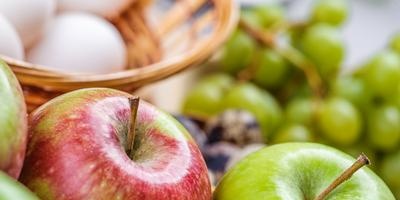 It is necessary to ensure that our food contains a sufficient amount of vitamins, in particular A and C. There are no vitamins A and C in bread at all, there are few of them in meat. Vitamin C can be supplied from fruits, vegetables, herbs and potatoes. Vitamin A rich carrot, tomatoes and herbs. It is necessary to ensure that our food contains a sufficient amount of vitamins, in particular A and C. There are no vitamins A and C in bread at all, there are few of them in meat. Vitamin C can be supplied from fruits, vegetables, herbs and potatoes. Vitamin A rich carrot, tomatoes and herbs.
With long-term storage of vegetables, fruits and potatoes, the vitamin C contained in them is gradually destroyed. Therefore, by the end of winter, vegetables and fruits stored at home and even in warehouses become much poorer in vitamins. So, in central Russia, potatoes (especially the so-called early varieties) by April reduce their vitamin C content by half.
Therefore, by the middle of winter - and even more so by the end of it - you need to be especially careful to ensure that your food includes foods rich in vitamins. Cooking should be done so that as little vitamins as possible are lost.
The general rules for the culinary processing of fruits, vegetables and herbs, which must be followed in order to minimize the loss of vitamins A and C, are as follows.
Fruits, vegetables, herbs and potatoes should not be peeled or cut long before boiling or roasting. If for some reason the potatoes still have to be cut in advance, then you need to put them in cold water.
It is recommended to cook potatoes, herbs and vegetables in a saucepan with a tight-fitting lid. Greens and vegetables should be immediately placed in boiling water.
When boiling vegetables and potatoes for main courses, do not throw away the broth. It is very useful to use it for making first courses, since vitamin C in large quantities goes into the cooking water.
Cooked foods do not need to be left in the air for a long time before use. The finished dish should not be reheated several times.
Boiled potatoes and greens are best eaten not mashed. In the form of puree, they almost completely lose vitamin C.
It is better not to pour vinegar on salads with herbs, since in the presence of acid vitamin A is destroyed faster. On the contrary, vitamin C stays longer in an acidic environment. Therefore, salads without herbs are recommended to be watered with vinegar in advance.
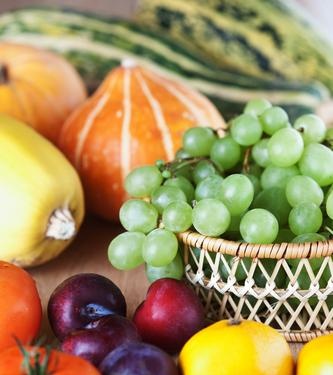 Let's point out the way to restore vitamin C lost during storage of potatoes. In late winter and early spring, it is recommended to sprinkle a small portion of potatoes - for soup or main course - with water and spread it in the kitchen or other room one or two days before cooking (but no longer). It is best to place the potatoes on a pre-soaked cloth, such as burlap. When the fabric and potatoes are dry, you should wet them again.By the time of cooking, potatoes, which have lost a significant part of vitamin C during storage, restore it almost completely. Let's point out the way to restore vitamin C lost during storage of potatoes. In late winter and early spring, it is recommended to sprinkle a small portion of potatoes - for soup or main course - with water and spread it in the kitchen or other room one or two days before cooking (but no longer). It is best to place the potatoes on a pre-soaked cloth, such as burlap. When the fabric and potatoes are dry, you should wet them again.By the time of cooking, potatoes, which have lost a significant part of vitamin C during storage, restore it almost completely.
Dry heat has a detrimental effect on vitamins. Therefore, you can not prepare plant products for the winter by drying. Dry fruits, for example, are completely devoid of vitamin C. Vitamins A and C, contained in fresh herbs, cannot stand long-term drying. In addition, when dried, greens lose their aromatic substances and do not boil well.
Recently, we have managed to find a good way of harvesting greens for the winter, preventing the loss of aromatic substances, vitamin A and partly vitamin C. This method is as follows.
Peeled potatoes are boiled and left in a cool place overnight to harden. Then pass it through a meat grinder onto a baking sheet. The resulting "worms" are evenly distributed on a baking sheet and placed in the oven or in a well-heated oven. "Worms" are dried until they become brittle, after which they are ground in a coffee mill. The resulting potato grits are stored in a dry place. By itself, it retains only a part of vitamin C. But if you take 5 parts of potato groats and crush it with 1 part of fresh herbs with a rolling pin, then the dishes prepared from it will be greatly enriched with vitamins (mainly vitamin A) and will taste like green onions , parsley, celery, etc.
If you wipe off the potato grits with green cabbage leaves, you can make cabbage-flavored cutlets from it at the end of winter. From tomatoes with the help of potato groats, you can prepare delicious tomato puree for the winter.
Vitamin A is rich in the leaves of a herb widespread in our northern forests - sour. Potato groats, peeled with acid, retains vitamin A without loss for a very long time.
The groats can be greatly enriched with greens, and, consequently, with vitamin A. For this, the groats, already erased once, need to be quickly dried (no longer than 3-5 minutes at 80-100 degrees) and wiped again with the same portion of greens. Then the groats are dried again and washed again with herbs, etc. (up to 8-10 times). In addition to vitamins A and C, greens rubbed with cereals contain a lot of minerals. We also need them for a healthy diet.
Potato groats enriched with greens keep well for several months. At the same time, food greens almost completely retain their taste, vitamin A and a significant proportion of vitamin C. Keep potato grits, rubbed with herbs, in closed jars or boxes.
G. Bossay
|
 Quite satisfying and tasty food sometimes turns out to be inadequate if it contains little or no substances called vitamins.
Quite satisfying and tasty food sometimes turns out to be inadequate if it contains little or no substances called vitamins. It is necessary to ensure that our food contains a sufficient amount of vitamins, in particular A and C. There are no vitamins A and C in bread at all, there are few of them in meat. Vitamin C can be supplied from fruits, vegetables, herbs and potatoes. Vitamin A rich
It is necessary to ensure that our food contains a sufficient amount of vitamins, in particular A and C. There are no vitamins A and C in bread at all, there are few of them in meat. Vitamin C can be supplied from fruits, vegetables, herbs and potatoes. Vitamin A rich  Let's point out the way to restore vitamin C lost during storage of potatoes. In late winter and early spring, it is recommended to sprinkle a small portion of potatoes - for soup or main course - with water and spread it in the kitchen or other room one or two days before cooking (but no longer). It is best to place the potatoes on a pre-soaked cloth, such as burlap. When the fabric and potatoes are dry, you should wet them again.By the time of cooking, potatoes, which have lost a significant part of vitamin C during storage, restore it almost completely.
Let's point out the way to restore vitamin C lost during storage of potatoes. In late winter and early spring, it is recommended to sprinkle a small portion of potatoes - for soup or main course - with water and spread it in the kitchen or other room one or two days before cooking (but no longer). It is best to place the potatoes on a pre-soaked cloth, such as burlap. When the fabric and potatoes are dry, you should wet them again.By the time of cooking, potatoes, which have lost a significant part of vitamin C during storage, restore it almost completely.